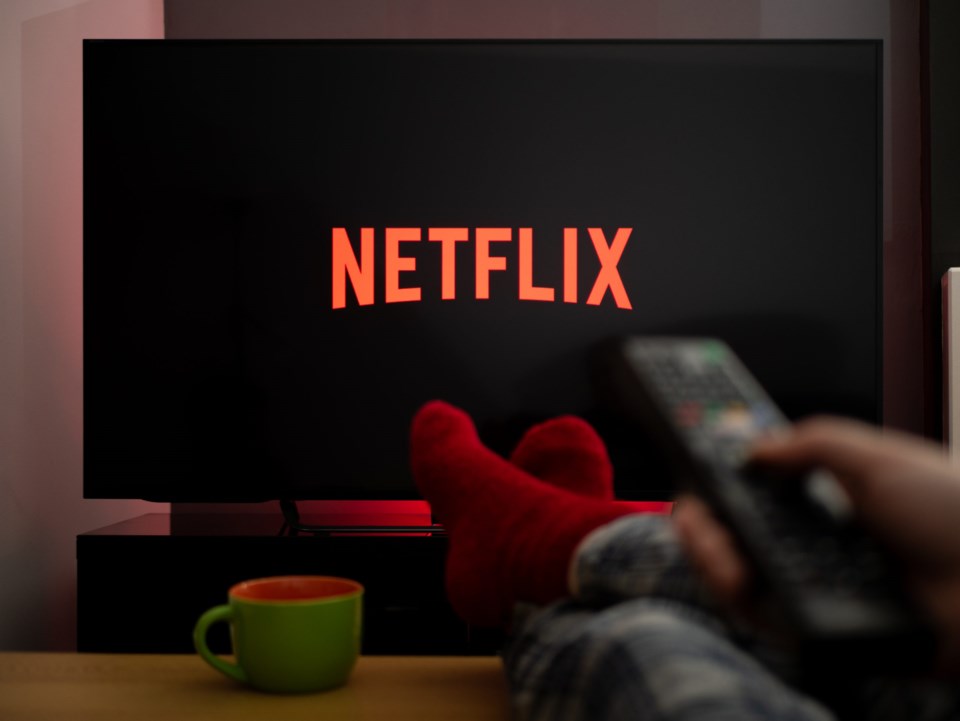British Columbians leaning heavily on their favourite Netflix shows or Spotify playlists to get them through the dark days of the pandemic will have to shell out a little more starting April 1.
The two streaming giants will begin charging 7 per cent Provincial Sales Tax (PST), as part of a B.C. tax code change. That could mean a $14 annual increase to a customer’s bill, depending on the plan.
Expect the usual howls of outrage from the Canadian Taxpayers’ Federation and others about the long arm of government once again reaching into your pocket and sneaking away with more money from your wallet.
However, it’s not quite that simple.
In a lot of ways, B.C.’s “Netflix tax” makes sense.
This tax change dates back to the 2020 B.C. budget, when the province added extra taxes to things such as carbonated sugary drinks, as well as “Canadian foreign sellers of software and telecommunications services… if specified B.C. revenues exceed $10,000.”
Turns out, the digital services tax was a matter of fairness.
Some streaming services, such as Crave, Apple TV, and Amazon Prime, were already charging B.C. PST because they had what financial officials described as a “brick and mortar” business presence in Canada. Crave, for example, is actually owned by Bell Media, which is headquartered in Toronto.
But Netflix, based in the U.S., was skirting both the PST and the federal GST.
“This is making sure that it’s a level playing field for everyone,” Finance Minister Carole James told reporters the day after the budget when asked about the so-called “Netflix tax.”
“Some are paying right now, others aren’t. We need to make sure that there’s fairness for businesses.”
She added that the move was “about making sure that the tax system catches up with the reality of people today.”
It also has the added effect of clarifying B.C.’s tax system as the shift toward digital purchasing continues.
If you have to pay PST when you order an album from Apple’s app store, or subscribe to Apple Music, why should Spotify be exempt? And yet, Spotify thought it was.
If you have to pay PST on a digital movie rental through Telus, why should a Netflix subscription be any different?
Other provinces have already moved this way, including Quebec and Saskatchewan.
The digital services tax was set to come into effect on July 1, 2021.
When COVID-19 hit in March 2021, the B.C. government deferred the extra taxes.
That pause ends April 1.
Critics will still find ways to take a run at the Netflix tax, even if, ultimately, it’s about fairness in the tax code.
The Canadian Taxpayers’ Federation has suggested B.C. just drop all PST on streaming services and digital purchases. That’s a bad idea that would rob the province of a legitimate source of revenue it could use to fund core services, for no good reason. It would set up an unfair dividing line, in which real-world goods and services at actual physical stores would be taxed, but millions of dollars in expenditures to large tech companies would be exempt - again, for no actual reason other than a populist anti-tax push.
It will be interesting to see what the Opposition BC Liberals do with the issue. They took a stab at criticizing the tax during the 2020 budget debate. Perhaps they will do so again. But make no mistake, were the BC Liberals in power, this is the exact kind of tax code fairness change they would be all over, to help level the playing field for small and homegrown B.C. businesses against international tech giants.
Finally, there’s the constitutional question.
These days nothing can be done without a court challenge, and it’s entirely possible Netflix could argue a province does not have jurisdiction to force a non-resident company to register and pay; the provincial tax code has traditionally been limited by law to property located inside the province.
In fact, the broader digital streaming sector could band together and challenge the authority of provinces to tax such services.
It would be an ill-considered move, and likely result in provinces like B.C. simply finding another way to levy a surcharge of fee on the services.
One thing is for sure, both Spotify and Netflix are raising their prices April 1 in an initial bid to comply with the B.C. PST.
It’s never fun to pay more. But in this case, it just makes sense.
Rob Shaw has spent more than 13 years covering BC politics, now reporting for CHEK News and writing for The Orca. He is the co-author of the national best-selling book A Matter of Confidence, and a regular guest on CBC Radio.
SWIM ON:
- Rob Shaw last wrote that the province is unrolling the most ambitious plan yet to deal with homelessness – but there’s a catch.
- Peter Menzies: The federal government is apparently preparing massive regulation of the Internet, pandering to niche lobby groups.
- Skip the Dishes’ petulant ‘BC Fee’ set off an entirely avoidable firestorm on social media. Maclean Kay delivers the breakdown, absolutely free of charge.



